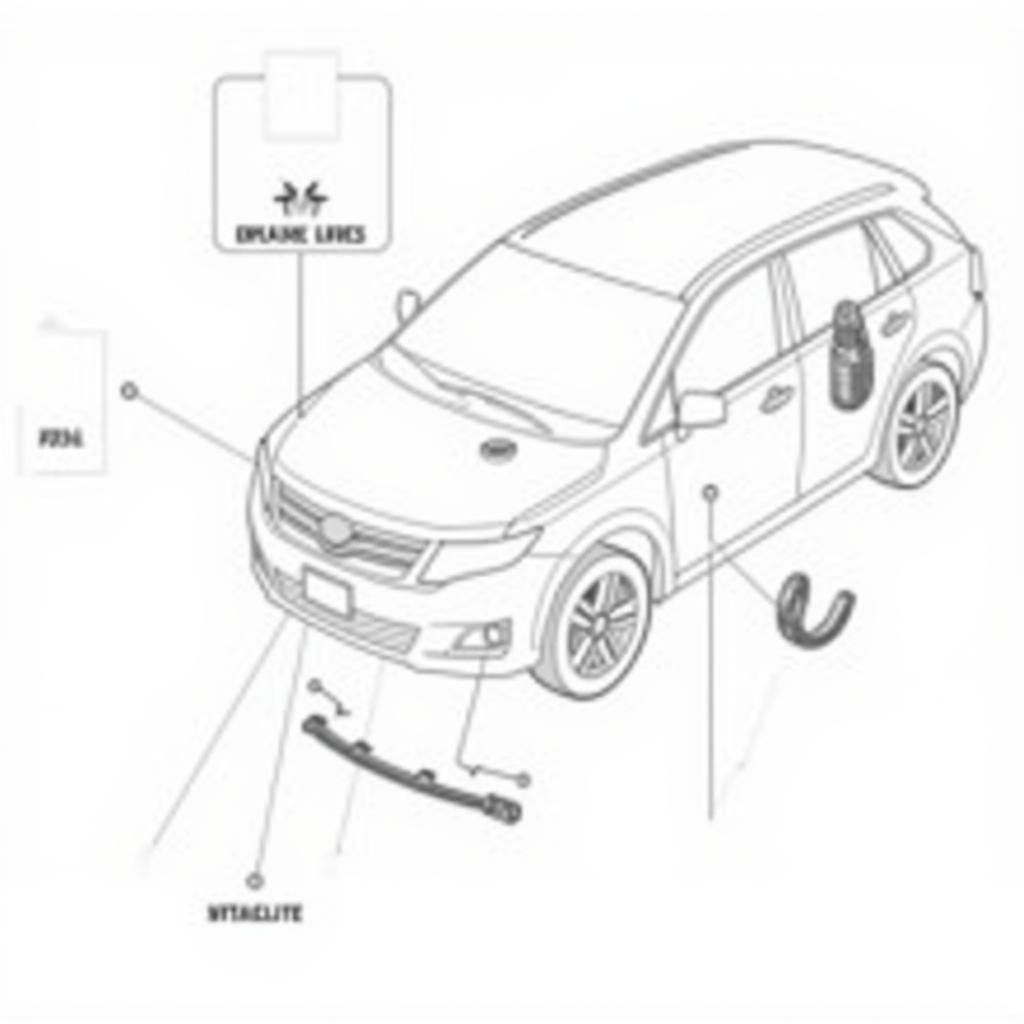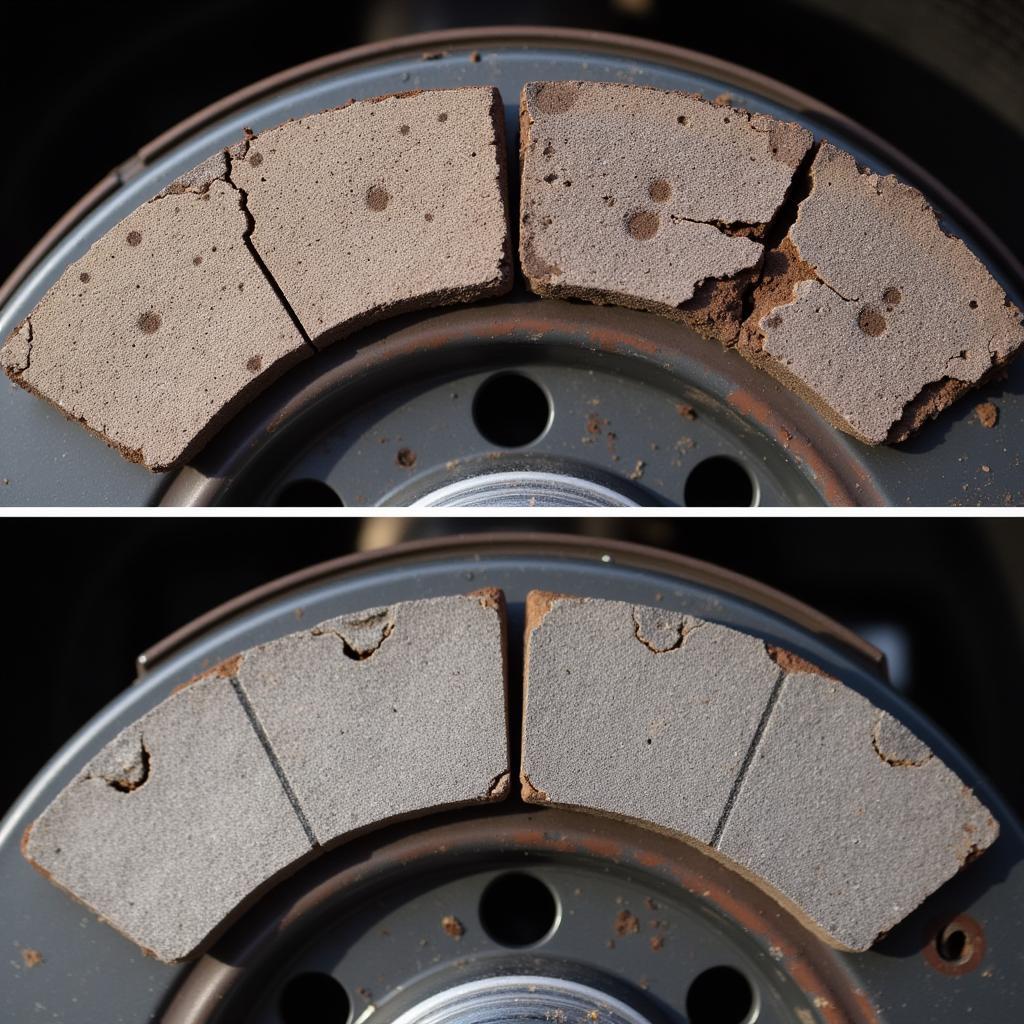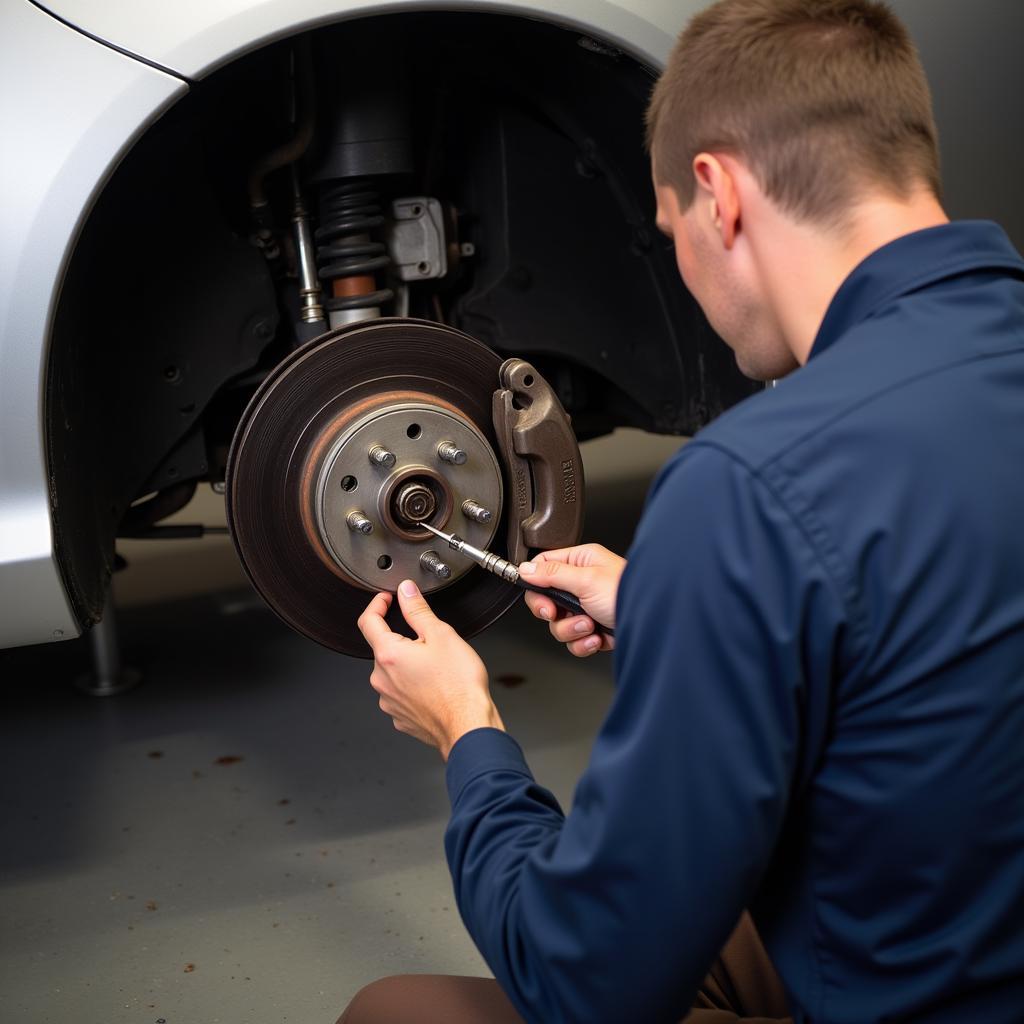The dreaded brake warning light on your Toyota Venza dashboard can be a cause for concern. This light is a critical safety feature, alerting you to potential issues with your vehicle’s braking system. Ignoring it could compromise your safety and lead to costly repairs. This article delves into the common causes of a Toyota Venza brake warning light and provides a comprehensive troubleshooting guide to help you address the issue effectively.
Understanding Your Toyota Venza Brake System
Before we delve into the causes and troubleshooting, it’s crucial to understand the basics of your Venza’s braking system. The system is comprised of several interconnected components, including:
- Brake Pedal: This is where it all starts. Pressing the pedal activates the hydraulic system.
- Brake Master Cylinder: This component converts your foot pressure into hydraulic pressure.
- Brake Lines: These lines carry the pressurized brake fluid to the wheels.
- Brake Calipers and Pistons: The calipers house the brake pads and pistons. Hydraulic pressure pushes the pistons, which in turn press the pads against the rotors to slow the vehicle.
- Brake Rotors (Discs): These metal discs are attached to the wheels. When the brake pads clamp down on the rotors, friction occurs, slowing the wheel’s rotation.
 Toyota Venza Brake System Diagram
Toyota Venza Brake System Diagram
Common Causes of a Toyota Venza Brake Warning Light
A glowing brake warning light on your Venza’s dashboard can indicate several potential problems:
1. Low Brake Fluid Level
One of the most common and easily fixable causes is low brake fluid. Brake fluid is the lifeblood of your braking system, transmitting the hydraulic pressure that forces the brake pads to engage. A leak anywhere in the system can lead to a drop in fluid level, triggering the warning light.
2. Worn Brake Pads
Brake pads are designed to wear down over time. When they become too thin, their ability to generate the necessary friction to stop the vehicle is compromised. Most modern vehicles, including the Venza, have wear indicators built into the brake pads. These indicators make a distinctive squealing sound when the pads are nearing the end of their service life.
 Worn Brake Pads on Toyota Venza
Worn Brake Pads on Toyota Venza
3. Brake System Leaks
As mentioned earlier, leaks within the brake system can lead to a drop in brake fluid, triggering the warning light. Leaks can occur in the brake lines, hoses, calipers, or even the master cylinder.
4. Faulty Brake Sensors
Your Venza utilizes sensors to monitor various aspects of the braking system. A faulty sensor, such as a brake pad wear sensor or a brake fluid level sensor, can send erroneous signals, illuminating the warning light even if there’s no actual problem.
5. ABS Issues
If your Venza’s brake warning light is illuminated alongside the ABS (Anti-lock Braking System) light, it could indicate a problem within the ABS system itself. The ABS system prevents wheel lockup during hard braking, and issues with its components, such as wheel speed sensors or the ABS control module, can trigger warning lights.
Troubleshooting a Toyota Venza Brake Warning Light
Important: If your brake warning light is on, it’s crucial to exercise caution and address the issue promptly. Avoid driving long distances or in heavy traffic until the problem is resolved.
Here’s a step-by-step troubleshooting guide:
-
Check the Brake Fluid Level: Locate the brake fluid reservoir under the hood. Check the fluid level. If it’s low, add the appropriate brake fluid (consult your owner’s manual) to the “MAX” line.
-
Inspect for Leaks: Visually inspect the brake lines, hoses, calipers, and master cylinder for any signs of fluid leaks. Look for wet spots, drips, or puddles of brake fluid.
-
Check the Brake Pads: If you suspect your brake pads are worn, it’s best to have them inspected by a qualified mechanic. They can determine if replacement is necessary.
-
Scan for Trouble Codes: If the brake fluid level is fine and you don’t see any visible leaks, it’s time to scan the vehicle’s computer for trouble codes. This requires a diagnostic scanner, which most auto parts stores and mechanics have.
-
Consult a Professional: If you’re unable to diagnose or resolve the issue yourself, don’t hesitate to seek professional assistance from a qualified mechanic specializing in Toyota vehicles.
 Mechanic Inspecting Toyota Venza Brakes
Mechanic Inspecting Toyota Venza Brakes
Remote Diagnostics and Software Solutions for Toyota Venza Brake Issues
In today’s technologically advanced automotive landscape, remote diagnostics and software solutions play an increasingly vital role in identifying and resolving vehicle issues, including brake problems.
Here’s how remote diagnostics can help:
- Pinpoint the Problem: Remote diagnostics can access your Venza’s onboard computer, retrieve trouble codes, and analyze sensor data to pinpoint the root cause of the brake warning light.
- Software Updates: Sometimes, outdated software within your Venza’s brake control module can cause issues. Remote software updates can address such problems without the need for a physical visit to the mechanic.
- Preventative Maintenance: Regular remote diagnostics can identify potential brake problems early, allowing for timely maintenance and preventing unexpected breakdowns.
Conclusion
The brake warning light on your Toyota Venza is a safety-critical feature that should never be ignored. By understanding the common causes and following the troubleshooting steps outlined in this article, you can effectively address the issue and ensure the optimal performance and safety of your Venza’s braking system.
FAQs
1. Can I drive my Toyota Venza with the brake warning light on?
It’s not recommended to drive with the brake warning light on. It’s crucial to diagnose and address the issue promptly.
2. How often should I change my Toyota Venza’s brake fluid?
Consult your owner’s manual for specific recommendations. Generally, it’s advisable to have your brake fluid flushed and replaced every 2-3 years or as recommended by your mechanic.
3. How much does it cost to replace brake pads on a Toyota Venza?
The cost of brake pad replacement varies depending on factors such as labor costs in your area and whether you choose OEM or aftermarket parts.
4. Can I check my Toyota Venza’s brake fluid level myself?
Yes, you can locate the brake fluid reservoir under the hood and check the fluid level.
5. What should I do if my Toyota Venza’s brake pedal feels spongy?
A spongy brake pedal can indicate air in the brake lines. Have your braking system inspected by a qualified mechanic immediately.
